| Country | Grants | Loans |
|---|---|---|
Iceland 2016/17 - grants and loans | In principle no public grants/scholarships are available. However, some merit-based grants are provided by universities and by the Icelandic Research Fund for Graduate Students for the 2nd cycle students. | Loans are provided to full-time students by the Icelandic Student Loan Fund for short, 1st and 2nd cycle
programmes. The amount depends heavily on student's family and personal circumstances, including income. The
basic individual support for academic year 2015/16 is ISK 165 717/month or ISK 24.858 for each completed ECTS
unit. Around 50 % of students take out a student loan. The same support is available for 1st and 2nd cycle
students.
Loans may be awarded to full-time students who participate in further programmes with 60 ECTS units of study in each academic year or at least 30 ECTS units each semester. Loans may also be granted to cover tuition fees for courses (not including maintenance) that are organised differently. Loans are not granted for preparatory courses, doctoral programmes or professional development programmes. The loan is indexed and has a fixed interest rate of 1 %. Repayment begins two years after graduation. Graduation is defined when the student ceases to receive loans from the Student Loan Fund, unless he demonstrates that he will continue to qualify for loans in the next school year thereafter. Refund will stand over until the debt is paid or the borrower has passed away. The board of the Fund may grant exemption from the annual repayment, in full or in part, if the pursuit of studies that qualify for a loan, illness, unemployment and/or unfitness for work due to illness, disability, pregnancy, the care of children, the care of a spouse or other comparable circumstances cause the recipient substantial financial difficulty. |
Ireland 2013/14 - grants and loans |
Need-based grants are provided by the Department of Education & Skills. Their amounts range from EUR 305 to
5 915 per academic year, depending on means, family size and distance from institutions. Students who qualify for
grants also have the student contribution and any tuition fees paid on their behalf.
The same department provides bursaries with a value of EUR 2 000 per academic year. The bursaries require qualification under both merit- and need-based criteria. Students need to satisfy specific conditions of residence, means, nationality and previous academic attainment to be eligible for grants. Students have to be enrolled full-time. | No loans or family allowances, except where a parent in receipt of a social welfare payment is supporting a dependent aged up to 22 who is in full-time education. |
Ireland 2015/16 - grants and loans | Need-based grants are provided to full-time students by the Department of Education & Skills. Their amounts range from EUR 305 to 5 915 per academic year, depending on means, family size and distance from institutions. Students who qualify for grants also have the student contribution or tuition fees paid on their behalf. The same department provides bursaries with a value of EUR 2 000 per academic year. The bursaries require qualification under both merit and need-based criteria. Students need to satisfy specific conditions of residence, means, nationality and previous academic attainment to be eligible for grants. Students have to be enrolled full-time. | No loans or family allowances. |
Ireland 2016/17 - grants and loans | Need-based grants are provided to full-time students by the Department of Education & Skills, depending on means, family size and distance from institutions. For first cycle students, the grant ranges from EUR 305 to 5 915 per academic year. Students who qualify for grants also have the student contribution or tuition fees paid on their behalf. Second cycle students may receive a grant of EUR 2 000 to cover their study fees. The income threshold for this payment is EUR 31 500 for the 2016/17 academic year, increasing relative to the number of family dependents. Alternatively, students who meet certain qualifying conditions are eligible to have their post-graduate tuition fees paid up to EUR 6 270. The bursaries of EUR 2 000 may also be awarded based on merit- and need- based criteria. Students need to satisfy specific conditions of residence, means, nationality and previous academic attainment to be eligible for grants. Short cycle students are not eligible. | No loans or family allowances. |
Italy 2013/14 - grants and loans | Public grants are allocated on the basis of both economic need and academic merit. The amount depends on whether the student lives with her/his parents and is defined, within the range mentioned in the diagram above, by the Regional authorities. For instance, the amounts for need-based grants range from EUR 1 904 (students living with parents) to EUR 5 052/year (students not living with parents). | No loans or family allowances. |
Italy 2015/16 - grants and loans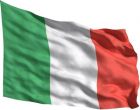 | Public grants are allocated on the basis of both economic need and academic merit. The amount depends on whether the student lives with her/his parents and is defined, within the range mentioned in the diagram above, by the Regional authorities. The Ministry sets the minimum and maximum amount of the grant for each new academic year. Currently the ministerial decree for 2015-2016 has not yet been issued. For 2014/15, the minimum amount of the grant was EUR 1 925.37 and the maximum amount of the grant was EUR 5 108.14. | No loans or family allowances. |
Italy 2016/17 - grants and loans | Public grants are allocated on the basis of both economic need and academic merit. The amount depends on whether the student lives with her/his parents and is defined, within the range mentioned in the diagram above, by the regional authorities. The ministry sets the minimum and maximum amount of the grant for each new academic year. For 2016/17, the minimum amount of the grant is EUR 1929.22 and the maximum amount of the grant is EUR 5 118.36. | No loans or family allowances. |
Latvia 2013/14 - grants and loans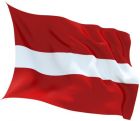 | Public grants to cover tuition fees are allocated on the basis of academic merit. These grants are primarily available in priority areas;
currently natural sciences, computer sciences and engineering.
Other public grants are traditionally available based on academic merit. Recently, more need-based criteria are taken into account. Disabled or orphaned students with families, from large families or in economic need are treated favourably. State budget grants are LVL 70/month (per 10 months) for the first and second cycle. Approximately 4 000 students receive state budget grants each semester (11.5 % of students studying in the state subsidized study places) (2012/13). Higher grants are available through the European Social Fund activities supporting the implementation of Master’s study programmes (specifically for students in the following priority study fields: natural science, mathematics, IT, engineering, health care, environmental sciences and creative industries). In 2012/13, 40.8 % of full time Master students in these priority study fields received this grant. | Two types of loans exist. The first is to cover tuition costs and the second to cover living costs with a cap of LVL 120/month. Loans need to be paid back 12 months after the end of the degree programme. 11 % of students take out loans (2012/13). |
Latvia 2015/16 - grants and loans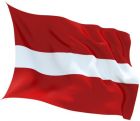 | Public grants (state-subsidised study places) are allocated on the basis of academic merit. These grants are primarily available in priority areas; currently natural sciences, computer sciences and engineering. Other public grants are traditionally available based on academic merit. Recently, more need-based criteria are taken into account. Disabled or orphaned students with families, from large families or in economic need are treated favourably. These state budget grants are EUR 99.60/month (per 10 months) for the first and second cycle. Only 14 % of all students studying in state financed places at public HEIs receive this funding support. | Two types of loans exist. The first is to cover tuition costs and the second to cover living costs with a cap of EUR 170.74/month. Loans need to be paid back 12 months after the end of the degree programme. In 2014/15, about 13 % of fee-paying students benefited from the loan for tuition costs, and 9 % of state subsidised students took out a loan for living expenses (2014/15). Both in 2014 and 2015 the Government has published a list of number of occupations considered to be significant for national economic development, and the state will cover part of the student loan for those students studying in these fields. |
Latvia 2016/17 - grants and loans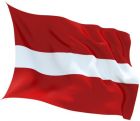 | Public grants, primarily based on academic merit, are available only to full-time students studying on state- subsidised study places. Recently, more need-based criteria are taken into account. Disabled or orphaned students with families, from large families or in economic need are treated favourably. The amounts are EUR 99.60/month (per 10 months) for the first and second cycle. Approximately 13 % of 1st cycle students, 8 % of 2nd cycle students and 8 % of short-cycle students studying receive this funding support. | Two types of loans exist, the first to cover tuition costs and the second, capped at EUR 170.74/month to cover living costs. Repayment needs to start 11 months after the end of the degree programme. In 2015/16, 12 % of fee- paying students benefited from loans, and this percentage is in decline since 2009. The state covers loans for students studying in fields considered significant for national economic development. |
Liechtenstein 2013/14 - grants and loans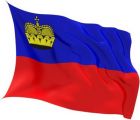 | Public support consists of a variable combination of grants and loans. The maximum total amount is
CHF 25 000, of which 40-60 % are a grant and the rest is a loan. From age 32 on, the state financial support
consists of interest free loans only.
Public grants are available for students, depending on their income (principle of subsidiarity). They need to have the Liechtenstein citizenship or reside in Liechtenstein to be eligible. The amount is calculated on the basis of admissible costs and the reasonable own support. Up to the age of 25 and if students have not been working fulltime for at least 2 years, parents are included in the eligibility and calculation process. State scholarships and grants are fully portable to promote mobility. There are no financial support systems for incoming students. | Public support consists of a variable combination of grants and loans. The maximum total amount is
CHF 25 000, of which 40-60 % are a grant and the rest is a loan. From age 32 on, the state financial support
consists of interest free loans only.
Public grants are available for students, depending on their income (principle of subsidiarity). They need to have the Liechtenstein citizenship or reside in Liechtenstein to be eligible. The amount is calculated on the basis of admissible costs and the reasonable own support. Up to the age of 25 and if students have not been working fulltime for at least 2 years, parents are included in the eligibility and calculation process. State scholarships and grants are fully portable to promote mobility. There are no financial support systems for incoming students. |
Liechtenstein 2015/16 - grants and loans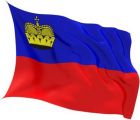 | Public support consists of a variable combination of grants and loans. The maximum total amount is CHF 25 000, of which 40-60 % are a grant and the rest is a loan. From age 32 on, the state financial support consists of interest free loans only. Grants are available for students, depending on their income (principle of subsidiarity). They need to have the Liechtenstein citizenship or reside in Liechtenstein to be eligible. The amount is calculated on the basis of admissible costs and reasonable expectations of self-support. Up to the age of 25 and if students have not been working fulltime for at least 2 years, parents are included in the eligibility and calculation process. State scholarships and grants are fully portable to allow for mobility (4). There is no financial support for incoming students. (4) Due to limited education programmes within the country 90 % of students from Liechtenstein study abroad (Switzerland, Austria). | Public support consists of a variable combination of grants and loans.
The maximum total amount is CHF 25 000, of which 40-60 % are a grant and
the rest is a loan. From age 32 on, the state financial support
consists of interest free loans only. Grants are available for students,
depending on their income (principle of subsidiarity). They need to
have the Liechtenstein citizenship or reside in Liechtenstein to be
eligible. The amount is calculated on the basis of admissible costs and
reasonable expectations of self-support. Up to the age of 25 and if students have not been working fulltime for at least 2 years, parents are included in the eligibility and calculation process. State scholarships and grants are fully portable to allow for mobility (4). There is no financial support for incoming students. (4) Due to limited education programmes within the country 90 % of students from Liechtenstein study abroad (Switzerland, Austria). |
Liechtenstein 2016/17 - grants and loans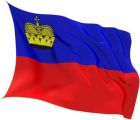 | Public support consists of a variable combination of grants and an interest-free loan. The maximum total
amount is CHF 25 000, of which 40-60 % is a grant and the rest is a loan. From age 32 on, the state financial
support consists of interest free loans only.
Students need to have had permanent residence in Liechtenstein for minimum three years when applying for public support to be eligible. Eligibility also depends on the student's income and assets (principle of subsidiarity/need-based system). The amount is calculated on the basis of admissible costs and reasonable expectations of self-support. Parents' income and assets are taken into account for the assessment of eligibility and calculation of support for students below the age of 25 and if s/he has not worked fulltime for at least 2 years. Repayment of loans start 18 months after study programmes has ended. Payment is made on fixed rates in six instalments per year. The repayment rate can be deferred once on request. State scholarships and grants can be applied for all tertiary education programmes and are fully portable to allow for mobility ( 10 ). There is no financial support for incoming students. | Public support consists of a variable combination of grants and an interest-free loan. The maximum total
amount is CHF 25 000, of which 40-60 % is a grant and the rest is a loan. From age 32 on, the state financial
support consists of interest free loans only.
Students need to have had permanent residence in Liechtenstein for minimum three years when applying for public support to be eligible. Eligibility also depends on the student's income and assets (principle of subsidiarity/need-based system). The amount is calculated on the basis of admissible costs and reasonable expectations of self-support. Parents' income and assets are taken into account for the assessment of eligibility and calculation of support for students below the age of 25 and if s/he has not worked fulltime for at least 2 years. Repayment of loans start 18 months after study programmes has ended. Payment is made on fixed rates in six instalments per year. The repayment rate can be deferred once on request. State scholarships and grants can be applied for all tertiary education programmes and are fully portable to allow for mobility ( 10 ). There is no financial support for incoming students. |
Lithuania 2013/14 - grants and loans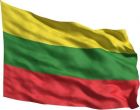 | There are three main types of scholarships/grants: for academic achievement, social scholarships and study
scholarship.
The amount of the scholarships for academic achievement is regulated by each higher education institution. It ranges from LTL 20 to 1 040 per month. The total period of receiving the scholarship depends on HEIs and varies from 10 to 12 months. The amount of study scholarship is the same as fees (vary depending on the study programme, study forms). Social scholarships are available for students with low socio-economical background, disabled students and orphans. Their amount is LTL 390 per month. Students can apply for this scholarship twice a year. If a student meets requirements two times, s/he gets the scholarship for 12 months. Students of the first cycle or integrated studies not funded by the State who have finished with the best results the first two academic years (in case of part-time studies – half of a study programme) and afterwards the remaining academic years, shall be reimbursed for the tuition fee paid for the studies during a respective period (a part of the fee which does not exceed the normative cost of studies). Around 2 500 students received this type of support. | In 2012, less than 5 % of students took out a student loan (1.68 % students received a state-supported loan for living expenses (LTL 100-6 500) and 2.55 % for tuition fees (LTL 750-22 675); the latter cannot be higher than the tuition fee for one academic year. 0.02 % of students received a state-supported loan to pay for part of the studies pursuant to international (interdepartmental) agreements. It ranges from LTL 2 350 to 7 800. 0.02 % students received a state loan to pay for tuition fees – LTL 520. Only students who were enrolled until 2009 can get the state loan |
Lithuania 2015/16 - grants and loans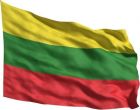 | There are three main types of grants: for academic achievement, social scholarships and study scholarship The amount of the academic achievement scholarship ranges from EUR 6 to 290 per month. The total period of receiving the scholarship depends on HEIs and varies from 10 to 12 months. About 6.2 % first cycle and 6 % second cycle students receive that type of scholarship. The study scholarship amount is the same as the fee amount (varying according to the study programme, and/or form of study). In 2014, about 1.34 % received a study scholarship. Social scholarships are available for students from a low socio-economic background, disabled students and orphans. It is EUR 114 per month. Students can apply for this scholarship twice a year. If a student meets requirements each time, s/he gets the scholarship for 12 months. About 4 % students receive social scholarship. First cycle or integrated study students not funded by the State who have finished the first two academic years withthe best results (in the case of part-time studies – half of a study programme) may also be reimbursed for the tuition fee paid. The number of students receiving this support represents no more than 10 % of the total number of statefunded students who have finished the appropriate period with the best results. | In 2014, about 5 % of students took out a student loan mainly designed to cover the cost of tuition fees. |
Lithuania 2016/17 - grants and loans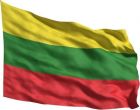 | There are three main types of grants available for both 1st and 2nd cycle students:
1) Academic achievement scholarships are awarded to around 9 % of students. Amounts range from EUR 6 to 228
per month, with EUR 57 the most common for full-time and EUR 38 for part-time students. The scholarship period
varies from 1 to 12 months. 2) Social scholarships of EUR 123.5 per month are awarded to around 3 % of
students, and support low socio-economic background, disabled students and orphans. The scholarship period is
up to 12 months. 3) Study scholarships may be provided to high performing self-financing students in both public
and private HEIs. In 2015, about 0.2 % of students in public HEIs received such support. The maximum grant
amount is determined by the maximum fees that the Ministry agrees to cover for state supported students.
Self-financing 1st cycle students who have completed the first two academic years or the rest of the programme with the best results may be reimbursed tuition fees. The maximum number of students who receive this support may not exceed 10 % of the state-funded student cohort. In 2015, approx. 4.5 % fee-paying students received reimbursement. | In 2015, about 4.5 % of all students took out a state-supported loan. 75 % of loans cover tuition fee costs, and 25 % are for living expenses with less than 1 % for studies abroad. The maximum amount to cover study fees is the annual study fee; for living expenses it ranges between EUR 950-1 900. The loan repayment must start one year after the end of studies. The term of loan repayment is 15 years. The interest rate depends on the credit institution. |
Luxembourg 2015/16 - grants and loans | Financial aid is a 'package' including a grant only, a grant plus loan, or only a loan depending on the income of the
student. The maximum financial support amount (grant and loan together) that a student can receive per academic
year is EUR 19 950. Support duration: 1st cycle = official duration + 1 year; 2nd cycle = official duration.
The higher education grants are open to all resident students, and to non-residents according to conditions related to working in Luxembourg. The eligibility criteria are the same for all students (short cycle, 1st cycle, 2nd cycle), including mobile students studying in another country. Basic grant: EUR 2 000 per academic year, without any condition. Mobility grant: EUR 2 450 per academic year, for students who attend higher education in another country and have accommodation expenses. Social criteria grant: EUR 0 to EUR 3 800, depending on the income of the student’s family. Registration fees: EUR 0 to EUR 1 850 (as grant) + EUR 0 to EUR 1 850 (as loan). | State guaranteed student loan: a EUR 6 500 basic loan is awarded to each resident student per academic year. The loan amount increases if the student does not receive a full or partial social grant. Reimbursement starts two years after having completed or stopped studies, and must be completed in 10 years. |
Malta 2013/14 - grants and loans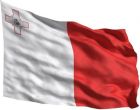 |
Student maintenance grants are provided to all Maltese students following a full-time first-cycle degree course.
EU students who fulfil the relevant eligibility criteria also receive this maintenance grant. These eligibility criteria are
neither need- nor merit-based but refer to regulations having to do with citizenship, years of residence in Malta,
completion of compulsory education, age, regularity of attendance and progress being made in studies. Students receive
a one-time grant of EUR 465.87, EUR 83.86 every four weeks between October and June and an annual grant of
EUR 465.87. Students studying for a Science, Mathematics or IT-related courses (known as ‘prescribed programmes’),
receive a one-time grant of EUR 698.81, EUR 146.75 every four weeks and an annual grant of EUR 698.81.
Students who, due to proven hardship are deemed to qualify for a supplementary maintenance grant, receive a higher grant than that referred to above. They receive a one-time grant of EUR 582.34, a grant of EUR 251.57 every four weeks from October to June and an annual grant of EUR 582.34. Grants are offered in some second-cycle degree courses which are required for the practice of a regulated profession. Several scholarship schemes are available to students who wish to take up undergraduate studies abroad or postgraduate studies in Malta or abroad. These schemes are issued regularly and include the Malta Government Scholarships Scheme (MGSS – Undergraduate and Postgraduate studies in all areas), the Malta Arts Scholarship (MAS) scheme and the Malta Sports Scholarships (MSS). The ‘Youth Specialisation Studies Scheme’ (YSSS) provides the opportunity for young Maltese people, aged between 18 and 30 years, to apply for a soft loan at a subsidised rate of interest to further their studies abroad or follow distance learning courses, provided that such courses are not available in Malta. | - |
Malta 2015/16 - grants and loans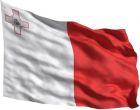 | Student maintenance grants are provided to all Maltese, EU/EEA students and other students who are following a full-time first-cycle degree course. Students following a general course receive an annual grant of EUR 465 plus ten stipend instalments of EUR 150 every four weeks between October and June. Students studying for a 'prescribed course' receive an annual grant of EUR 698.81 and ten stipend instalments of EUR 150.59 every four weeks between October and June. There is also an additional one-time grant of either EUR 465.87 or EUR 698.81 equivalent to the annual grant at the beginning of a study programme. Maintenance grants are also offered in some second-cycle degree courses leading to a regulated profession. Students who, due to proven hardship, are deemed to qualify for a supplementary maintenance grant receive ten instalments of EUR 288.93 every four weeks, instead of the stipend given to general or prescribed courses. Students receiving the supplementary maintenance grant who are following a general course receive an annual grant of EUR 582.34 while students following a prescribed course receive an annual grant of EUR 698.81. Since 1 January 2014 the Student Maintenance Grant, has increased on a yearly basis due to the national Cost of Living Adjustment (COLA). While in January 2014 the supplementary grant was increased by EUR 300, in January 2015 the supplementary grant has only slightly increased due to the new COLA adjustment. Several scholarship schemes are available to students who wish to pursue studies abroad. | No loans and no family allowances are in place. |
Malta 2016/17 - grants and loans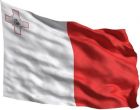 | All short and 1st cycle full-time students (Maltese EU/EFTA/EEA) receive a student maintenance grant. Students
in 'prescribed courses' (listed in Legal Notice 372 of 2005) obtain an annual grant of EUR 698.81 and ten stipend
instalments of EUR 151.99 every four weeks between October and June. Those in other full-time programmes
('general courses') receive an annual grant of EUR 465 plus ten stipend instalments of EUR 86.85 every four
weeks between October and June. At the start of studies, a one-time grant of EUR 698.81 or EUR 465.87
respectively, is offered. Maintenance grants are awarded in second-cycle courses leading to a regulated
profession. Student maintenance grant increases pro rata on a yearly basis to reflect the national Cost of Living
Adjustment (COLA).
Students who, due to proven hardship, qualify for a supplementary maintenance grant receive ten instalments of EUR 291.62 every four weeks, instead of the stipend. Students in a 'general course' receive an annual grant of EUR 465.87 while students in 'prescribed course' EUR 689.81. Several scholarship schemes are available to students who wish to pursue studies abroad. | No loans and no family allowances are in place. |
Montenegro 2013/14 - grants and loans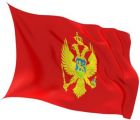 | Ministry of Education, in accordance with prescribed criteria, allocates loans and scholarship for talented students
every year.
Scholarships/grants are given to 'talented students', that are students with highest marks and special affinity towards scientific/artistic work, and who were rewarded prizes at state and international competitions. Grants and loans can be received by students 10 months per year. | Average loan is EUR 42/month, while scholarship for talented students is EUR 86/month.
Grants and loans can be received by students 10 months per year. |
Montenegro 2015/16 - grants and loans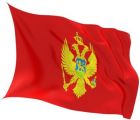 | There is no need-based grant. | Merit-based grants are provided for students showing particular
scientific or artistic inclinations and winning awards at international
and national competitions. Grants are awarded on the basis of the
contest announced by the Ministry at least two months before the
beginning of an academic year. Grants are not awarded to student loan
beneficiaries. Grant amount depends on the level of the maximum loan increased by 30-50 %. The maximum grant is EUR 86/month paid in ten monthly instalments. Loans are available on the basis of student performance. The average loan is EUR 45/month for ten monthly instalments. |
Montenegro 2016/17 - grants and loans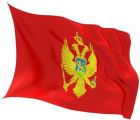 | There is no need-based grant. Merit-based grants are awarded to the best-performing first-time students in the second and the succeeding academic years of study, including students showing particular scientific or artistic inclinations and winning awards at international and national competitions. Grants are awarded on the basis of the contest announced by the Ministry at least one month before the beginning of an academic year. Grants are not awarded to student loan beneficiaries. The maximum grant is EUR 86/month paid in ten monthly instalments. The Ministry of Education also awards co-financing scholarships of up to EUR 500 for 2nd cycle and doctoral students who study in Montenegro or abroad. | State guaranteed loans are available on the basis of performance to first-time students. The average loan is EUR 45/month for ten monthly instalments. Repayment must start one year and the latest 18 months after completion of studies. Best performers may be exempted from repayment or receive discounts. |
Netherlands 2016/17 - grants and loans | Depending on parental income, a supplementary grant is available to a maximum of EUR 384 per month. This does not need to be repaid if
the student graduates within 10 years, but the maximum loan amount is lowered. On average students enrolled in 2015/16 received an annual
amount of ca. EUR 3 900.
Students who are delayed in their studies due to medical conditions have a right to an extra year of student finance. They are also eligible for a loan remittance up to EUR 1 200 if they graduate within 10 years. For all eligible students public transport is free, either weekdays or at the weekends according to their choice. 'Vouchers' for professional training: Students that start in higher education (HBO or university) for the first time between 2015/16 and 2018/19 receive a voucher for professional training when they graduate. This voucher has a maximum value of EUR 2 000 and can be used between 5 and 10 years after graduation. | Students enrolled in higher professional education or university since 1 September 2015 can apply for a state loan – maximum of EUR 1 028
per month. This is composed of two loans: one to cover living costs, with a maximum of EUR 862.50 per month and the other of EUR 165 per
month to cover tuition fees. Those students already enrolled before 2015 are eligible for need-based grants running for the standard length of
programmes.
Students can take out the same amount of loan for a further three years after graduation. The loan repayment period is 35 years. The amount to be repaid per month depends on the size of the loan, personal income and interest rates (0.01 % in 2016). When income is below the minimum wage no loan repayments are required. After 35 years, outstanding debt is waived. It is also possible to reduce payments when income decreases by at least 15 %. |
Norway 2013/14 - grants and loans | Norwegian students are entitled to loans and grants from the State Educational Loan Fund (NSELF). The basic
support is at most NOK 94 400 per academic year (10 months). The basic support is initially given as a loan,
however, 40 % of the loan may be converted to a grant for students who live away from their parents and pass all
exams. The grant will be reduced if student's income or assets exceed certain limits. The amounts are universal for
all students who are eligible for financial support. The maximum amount of grant is NOK 37 760.
Students under 25 years of age may also receive a grant for travel costs. Financial support is also given for study abroad as there is full portability of NSELF loans and grants. Exchange students and full degree students qualify for support. Students taking care of children may receive a grant for each child under the age of 16. Students on parental leave can be given a grant for up to 44 weeks, and students who cannot study because of illness may have the loan converted into a grant for up to four months and two weeks a term. Physically disabled students can get an extra grant if they are unable to work during their studies, and they may also receive basic support for twelve months per year. | Norwegian students are entitled to loans and grants from the State Educational Loan Fund (NSELF). The basic
support is at most NOK 94 400 per academic year (10 months). The basic support is initially given as a loan,
however, 40 % of the loan may be converted to a grant for students who live away from their parents and pass all
exams. The grant will be reduced if student's income or assets exceed certain limits. The amounts are universal for
all students who are eligible for financial support. The maximum amount of grant is NOK 37 760.
Students under 25 years of age may also receive a grant for travel costs. Financial support is also given for study abroad as there is full portability of NSELF loans and grants. Exchange students and full degree students qualify for support. Students taking care of children may receive a grant for each child under the age of 16. Students on parental leave can be given a grant for up to 44 weeks, and students who cannot study because of illness may have the loan converted into a grant for up to four months and two weeks a term. Physically disabled students can get an extra grant if they are unable to work during their studies, and they may also receive basic support for twelve months per year. |
Norway 2015/16 - grants and loans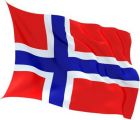 | Norwegian students are entitled to loans and grants from the State Educational Loan Fund (NSELF). The basic support is at most NOK 97 850 per academic year (10 months). The basic support is initially given as a loan. However, 40 % of the loan may be converted to a grant for students who live away from their parents and pass all exams. The grant will be reduced if the student's income or assets exceed certain limits. The amounts are universal for all students who are eligible for financial support. The maximum amount of the grant is NOK 39 140. Students under 25 years of age may also receive a grant for travel costs. Financial support is also given for study abroad as there is full portability of NSELF loans and grants. Exchange students and full degree students qualify for support. Students taking care of children may receive a grant for each child under the age of 16. Students on parental leave can be given a grant for up to 49 weeks, and students who cannot study because of illness may have the loan converted into a grant for up to four months and 15 days per academic year. Physically disabled students can receive an extra grant if they are unable to work during their studies, and they may also receive basic support for twelve months per year. | Norwegian students are entitled to loans and grants from the State
Educational Loan Fund (NSELF). The basic support is at most NOK 97 850
per academic year (10 months). The basic support is initially given as a
loan. However, 40 % of the loan may be converted to a grant for
students who live away from their parents and pass all exams. The grant
will be reduced if the student's income or assets exceed certain limits.
The amounts are universal for all students who are eligible for
financial support. The maximum amount of the grant is NOK 39 140. Students under 25 years of age may also receive a grant for travel costs. Financial support is also given for study abroad as there is full portability of NSELF loans and grants. Exchange students and full degree students qualify for support. Students taking care of children may receive a grant for each child under the age of 16. Students on parental leave can be given a grant for up to 49 weeks, and students who cannot study because of illness may have the loan converted into a grant for up to four months and 15 days per academic year. Physically disabled students can receive an extra grant if they are unable to work during their studies, and they may also receive basic support for twelve months per year. |
Norway 2016/17 - grants and loans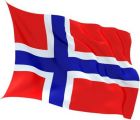 | Norwegian students (both part-time and full-time) are entitled to basic support (loans and grants) from the State
Educational Loan Fund (NSELF). The maximum basic support is NOK 103 950 per academic year (10 months),
which is initially given as a loan. However, 40 % of the loan may be converted to a 'state educational grant' for
students who live away from their parents and pass all exams. The grant will be reduced if the student's income
exceeds NOK 172 595 or have assets exceeding NOK 392 662. The amount of the basic support is universal for
all students who are eligible for financial support. The maximum amount of the grant is NOK 41 580.
Students under 25 years of age may also receive a grant for travel costs. Students taking care of children may receive a grant for each child under the age of 16 (NOK 16 200). Students on parental leave can be given a grant for up to 49 weeks. Students who cannot study because of illness may have the loan converted into a grant for up to four months and 15 days per academic year. Physically disabled students can receive an extra grant (NOK 35 490) if they are unable to work during their studies, and they may also receive basic support for twelve months per year. There is full portability of NSELF loans and grants for both exchange and degree students studying abroad. After graduation, the student will receive a repayment programme stipulating how much s/he has to pay and a prognosis for the repayment period. Interest is calculated from the first day of the month following graduation, and also if s/he interrupts his/her education or is no longer entitled to financial support. Repayment normally starts in monthly installments seven months after graduation. The amount varies according to the size of the debt and the length of the repayment period. The most common repayment period for students with NOK 300 000 debt is 20 years. | Norwegian students (both part-time and full-time) are entitled to basic support (loans and grants) from the State
Educational Loan Fund (NSELF). The maximum basic support is NOK 103 950 per academic year (10 months),
which is initially given as a loan. However, 40 % of the loan may be converted to a 'state educational grant' for
students who live away from their parents and pass all exams. The grant will be reduced if the student's income
exceeds NOK 172 595 or have assets exceeding NOK 392 662. The amount of the basic support is universal for
all students who are eligible for financial support. The maximum amount of the grant is NOK 41 580.
Students under 25 years of age may also receive a grant for travel costs. Students taking care of children may receive a grant for each child under the age of 16 (NOK 16 200). Students on parental leave can be given a grant for up to 49 weeks. Students who cannot study because of illness may have the loan converted into a grant for up to four months and 15 days per academic year. Physically disabled students can receive an extra grant (NOK 35 490) if they are unable to work during their studies, and they may also receive basic support for twelve months per year. There is full portability of NSELF loans and grants for both exchange and degree students studying abroad. After graduation, the student will receive a repayment programme stipulating how much s/he has to pay and a prognosis for the repayment period. Interest is calculated from the first day of the month following graduation, and also if s/he interrupts his/her education or is no longer entitled to financial support. Repayment normally starts in monthly installments seven months after graduation. The amount varies according to the size of the debt and the length of the repayment period. The most common repayment period for students with NOK 300 000 debt is 20 years. |
Nothern Ireland 2013/14 - grants and loans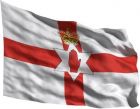 |
1st cycle full-time – the support package includes a need based grant for living costs. The maximum is GBP 3 475 (for students with a
household income of GBP 19 203 or less). In 2011/2, 39 % of applicants were awarded a full grant and 23 % were awarded a partial grant.
Students who are lone parents or who have certain disabilities may be eligible for a special support grant.
1st cycle full-time – the support package includes a loan for living costs for all students. The maximum loan is GBP 3 750 for students living in the family home and GBP 4 840 for students living away. The amount is reduced for students who receive a need based grant. Repayment as for tuition fee loans. 1st cycle full-time – all institutions must offer an additional bursary to students who receive the maximum grant for living costs or special support grant. The amount varies. 1st cycle part-time – a need-based grant for tuition fees and other costs is available. Loans are not available. 2nd cycle – with the exception of a few specific disciplines, such as teaching, social work and some health professions, the majority of students following taught programmes are self-financing. Where available, a taught masters studentship is for GBP 6 863. There is some support for students on doctoral research programmes (which may incorporate masters level study). The Research Councils set a minimum level for this stipend which for 2013/14 is GBP 13 726 per year. Around 60 % of students on taught programmes and 30 % of research students do not receive any support towards tuition fees or living costs. | Tax benefits for parents and family allowances do not play a role in the student support system. |
Nothern Ireland 2015/16 - grants and loans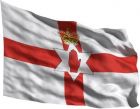 | 1st cycle full-time: the support package includes a need-based grant for living costs. The grant is awarded on a sliding scale with a full grant of GBP 3 475 for students with a household income of GBP 19 203 or less, with partial grants for students whose household income is up to GBP 41 065. In 2013/14, 60 % of applicants eligible for support (grant and/or loan) were awarded a grant: 38 % were awarded a full grant and 22 % were awarded a partial grant. All institutions must offer an additional bursary, whose amount varies, to students who receive the maximum grant for living costs or special support grant. | The support package also includes a loan for living costs for all students. The maximum loan is GBP 3 750 for students studying in Northern Ireland, GBP 6 780 for students studying in London, and GBP 4 840 for students studying elsewhere. The amount is reduced for students who receive a need based grant. Repayment as for tuition fee loans. 1st cycle part-time: the support package includes a need based grant towards payment of fees (though it is not intended to cover them completely). The grant is awarded on a sliding scale with a full grant of GBP 1 230 for students who are studying at 75 % or greater intensity and whose household income is GBP 16 842 or less, with partial grants for students whose household income is up to GBP 25 420. The course must be equivalent to at least 50 % of full-time study for a student to qualify for the fee grant. 2nd cycle – there is no universal support package. 2nd cycle postgraduate non-taught – individual institutions can provide a merit based grant, which tends to follow the minimum stipend recommended by Research Councils UK, GBP 14 057 for 2015/16. |
Nothern Ireland 2016/17 - grants and loans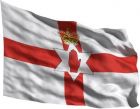 | 1st cycle and short cycle full-time students: the support package includes a need-based grant for living costs. The full grant of GBP 3 475 is awarded to students with a household income of GBP 19 203 or less, with partial grants for students whose household income is up to GBP 41 065. In 2014/15, 59.9 % of applicants for support received a grant (37.6 % of applicants received a full grant and 22.3 % a partial grant). All institutions must offer an additional bursary, whose amount varies, to students who receive the maximum grant for living costs or special support grant. | The support package also includes a loan for living costs for all students. The maximum loan is GBP 3 750 if living in
the family home, GBP 6 780 if living away from home and GBP 5 770 for a year of a UK course spent abroad. The
amount is reduced for students who receive a need-based grant. Repayments are income-contingent and made at
the rate of 9 per cent of income above the earning threshold of GBP 17 495.
1st cycle part-time students: the support package includes a need-based grant towards payment of fees (though it is not intended to cover them completely). Students studying at 50 % or greater intensity and whose household income is up to GBP 25 420 receive a fee grant. The grant is awarded on a sliding scale with the maximum awarded to students studying at 75 % intensity whose household income is less than GBP 16 843. For 2nd cycle students, there is no universal support package. 2nd cycle postgraduate non-taught: individual institutions can provide a merit based grant, which tends to follow the minimum stipend recommended by Research Councils UK, GBP 14 296 for 2016/17. |
Poland 2013/14 - grants and loans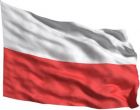 | Financial support is granted to students in the following forms: a needs-based grant available for students with a
low personal/family income, a needs-based grant available for students with disability, emergency grant/ allowance
and merit-based grant for best students. The income threshold to be eligible for need-based grants for students
with low family income is PLN 592.80-850.20 per person per year (from 1 November 2012).
The average amount of the need-based grant is PLN 2 783 (2011). The average amount of the merit-based grant is PLN 1 035 with a maximum of PLN 14 000. | Loans of PLN 6 000/year may be taken out in any cycle for those students whose personal income is below net PLN 2 300/month (in 2012). The state guarantees part of the loans for low income students: students with family income of PLN 600/month per person have been granted a 100 % guarantee of their loan and students with a family income of PLN 1 000/month a 70 % guarantee. |
Poland 2015/16 - grants and loans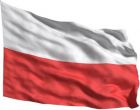 | Need-based grants are available for students with a low personal/family income, and for students with disabilities, the income threshold to be eligible for need-based grants for students with low family income is PLN 592.8-895.7 per person per month (the exact level of the threshold from this range depends on the decision of a higher education institution). The average amount is PLN 4 302.3 per year (2013). Merit-based grants are allocated to the best-performing students. The average amount of the merit-based grant is PLN 4 213.9 (2013) per year. The total monthly amount of the needs-based grant and the merit-based grant may not be more than 90 % of the lowest basic pay of an assistant (the lowest academic position at higher education institutions) as regulated by the legislation on the remuneration of academic staff (PLN 2245 in 2014). | Loans of PLN 6 000/year may be taken out in any cycle for those students whose personal income is below net PLN 2 300/month (in 2013). The state guarantees part of the loans for low income students: students with family income of PLN 600/month per person have been granted a 100 % guarantee of their loan and students with a family income of PLN 1 000/month a 70 % guarantee. |
Poland 2016/17 - grants and loans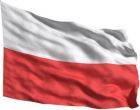 | Need-based grants are available for all students (both 1st and 2nd cycle and part-time) with a low personal/family
income, and for students with disabilities. The income threshold to be eligible for need-based grants for students
with low family income is decided by HEIs and is between PLN 668.20 and 1 043.90 per person per month. In
2014, 13.28 % of all students received a need-based grant based on their socio-economic situation and 1.64 % of
all students received the need-based grants for students with disabilities. The average amount was PLN 4 674.28
per year.
Merit-based grants are allocated to the best-performing full-time and part-time students. The average amount of the merit-based grant is PLN 4 332.70 per year. 7.43 % of all students received such grants in 2014. The total monthly amount of the need- and merit-based grants may not be more than 90 % of the lowest basic pay of an assistant (the lowest academic position at higher education institutions) as regulated by legislation. | Loans of PLN 6 000/year may be taken out in any cycle by students whose personal income is below net PLN 2 500/month (in 2014/15). The state guarantees the entire loan for students with family income of PLN 600/month per person and 70 % for students with a family income of PLN 1 000/month. Students starting their studies before the age of 25 can apply for a loan which is granted for the period of study or maximum six years. Repayment begins two years after graduation. While receiving the loan and for the following two years interest is paid by the state budget, and later on interest rates are capped. The best-performing 5 % of graduates may obtain the cancellation of 20 % of their loan. |
Portugal 2013/14 - grants and loans | Student grants can be need or merit based.
Eligibility for need-based scholarships is determined by the income of the student and his family. Need-based grants amount vary between EUR 1 065.72 and 5 677.14 (2013/14). Merit-based grants amount is EUR 2 415 (2013/14). | There is a special loan scheme for higher education students at low rates, with government guarantee. In 2011/12, 3.66 % of all students enrolled took out the loan. |
Portugal 2015/16 - grants and loans | Student grants can be need or merit based. Eligibility for need-based scholarships is determined by the income of the student and his family. Need-based grant amounts depend on the fee levels and vary between EUR 1 063 and EUR 5 675. Merit-based grants are set at EUR 2 525.00. There are several criteria, namely:
Additional grants are provided for the first time in 2014/15 to a maximum of 1 000 students who move to study in regions of Portugal where there is less pressure on the population. The annual amount is EUR 1 500. | There is a special loan scheme for higher education students at low rates, with government guarantee. |
Portugal 2016/17 - grants and loans | Student grants can be need or merit based. Eligibility for need-based scholarships is determined by the income of the student and his/her family. Need-based grant amounts depend on the fee levels and vary between EUR 1 063.47 and EUR 5 675. Merit-based grants are set at EUR 2 650.00 per year. The number of merit-based grants that each institution can provide is previously determined by the ratio 1 grant per 500 students. To be eligible for the grant, students need to have completed all study requirements of the previous year and to have obtained good marks (over 16 on a scale 0-20). Additional grants are provided to a maximum of 1 000 students who move to study in less populated regions of Portugal. The annual amount is EUR 1 500. | There is a special loan scheme for higher education students at low rates, with government guarantee. |
Romania 2013/14 - grants and loans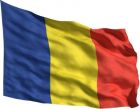 | Merit-based grants take different forms: study bursaries (most commonly RON 250/month) and merit-based
scholarships (most commonly RON 350/month). High achievement scholarships (of which one exists per faculty)
can reach up to RON 600/month. Grants for excellences up to 500 RON/month for performance in the research at
Bachelor level. All grants can be taken 9 months.
Need-based grants, most commonly amounting to RON 300/month, are based on the financial situation of the student. The grant amounts are determined by each higher education institution. They aim to cover the costs of living in student accommodation and of meals. The university establishes the number of grants out of the total fund for higher education expenses. The funds are annually provided by the ministry. | No student loans. |
Romania 2015/16 - grants and loans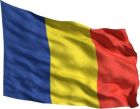 | Need-based grants, most commonly amounting to RON 300/month and payable for 10 months, are based on the financial situation of the student. Merit-based grants take different forms: study bursaries (most commonly RON 250/month for 10 months) and merit-based scholarships (most commonly RON 400/month for 10 months). High achievement scholarships (of which one exists per faculty) can reach up to RON 600/month for 10 months. Grants for excellent performance in research at Bachelor level have a ceiling of RON 500/month for 10 months. The grant amounts are determined by each higher education institution. They aim to cover the costs of living in student accommodation and of meals. The university establishes the number of grants out of the total fund for higher education expenses. The funds are annually provided by the ministry. There are also subsidies granted by the Ministry of Education for accommodation and meals. | No student loans. |
Romania 2016/17 - grants and loans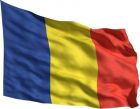 | Need-based grants, most commonly amounting to RON 250/month and payable for 9.7 months, are based on the
financial situation of the student. In 2015, 7.84 % of full-time students received a need-based grant.
Merit-based grants take different forms: study bursaries (most commonly RON 375/month for 9.7 months) and merit-based scholarships (most commonly RON 400/month for 9.7 months). High achievement scholarships (of which one exists per faculty) can reach up to RON 600/month for 9.7 months. Grants for excellent performance in research at Bachelor level have a ceiling of RON 500/month for 9.7 months. 15.68 % of full-time students received merit-based grants in 2015. The grant amounts are determined by each higher education institution. They aim to cover the costs of living in student accommodation and of meals. The university establishes the number of grants out of the total fund for higher education expenses. The funds are annually provided by the ministry. First- and second-cycle students are eligible, but part-time students are not eligible for grants. | No student loans. |
Scotland 2013/14 - grants and loans | Both grants and loans are available to students depending on circumstances. The ‘Young Student’s Bursary' of up to GBP 1 750 per year is available to students from low income backgrounds. The ‘Independent Students’ Bursary’ of up to GBP 750 per year is available to students over the age of 25 or who are living with a partner. Other grants also exist for students with disabilities. | Many students take out loans. Depending on household income, young students can borrow a maximum of GBP 5 500 per year. Likewise, independent students can borrow a maximum of GBP 6 500 per year. All students can borrow GBP 4 500 per year irrespective of household income. |
Scotland 2015/16 - grants and loans | Fundamental changes to the student support package were introduced in the academic year 2013/14. Both grants and loans are available to full-time students depending on circumstances. The 'Young Student’s Bursary' of up to GBP 1 875 per year is available to students from low income backgrounds. The ‘Independent Students’ Bursary’ of up to GBP 875 per year is available to students over the age of 25 or who are living with a partner. Other grants also exist for students with disabilities. | Many students take out loans. Depending on household income, young students can borrow a maximum of GBP 5 750 per year. Likewise, independent students can borrow a maximum of GBP 6 750 per year. All students can borrow GBP 4 750 per year irrespective of household income. |
Scotland 2016/17 - grants and loans | Both grants and loans are available to full-time first-cycle students, and amounts depend on the level of household
income. The 'Young Student’s Bursary' of up to GBP 1 875 per year is available to students under the age of 25 at
the start of their course with a household income below GBP 34 000. The 'Independent Students' Bursary' of up to
GBP 875 per year is available to students aged at least 25, with a dependent child or married/co-habiting, and with
a household income below GBP 18 999. Additional support is also available to students who incur extra costs
related to a disability or learning difficulty.
Depending on household income, 'young students' can take out a maximum loan of GBP 5 750 per year, and 'independent students' a maximum of GBP 6 750 per year. All eligible students can also apply for a non-income assessed student loan of GBP 4 750 per year. Students become liable to repay their loans in the April after they graduate or leave their course. Repayments for loans are normally deducted from earnings by employers at the rate of 9 % of income above GBP 17 495. In 2015, 51 % of full-time students took out loans. In 2016-17, the maximum support package – grants and loans combined – is GBP 7 625. A part-time fee grant (PTFG) is available to Scottish and EU students studying credits equivalent to 15-59.5 ECTS per academic year. The level of grant is based on a pro-rata amount of the full-time regulated fee. | Second cycle students can apply for a fee loan of up to GBP 3 400 for eligible full-time courses (GBP 1 700 for part-time). Second cycle students on eligible courses may also apply for a living cost loan of up to GBP 4 500. |
Serbia 2016/17 - grants and loans | Student grants are provided by the Ministry of Education, Science and Technological Development only to 'budget-financed' students in the 1st and 2nd cycle. The state grant scheme is merit based, and only students with an average grade of at least 9 (out of 10) may apply. Specific merit-based grants for students from vulnerable groups are available, with additional needs-based criteria, like the proof of disability, certificate/proof of socio- economic status, etc. A state grant amounts to RSD 84 000 annually, paid in ten monthly instalments. In the academic year 2015/16, there were 8 914 student grantees. The Ministry of Youth and Sports provides additional merit-based grants of RSD 300 000 per year to up to 800 bachelor and 400 master students. State universities, provincial and university cities’ governments also provide funds for supporting talented students. 9.5 % of budget funded students (4.8 % of all) received grant. Students with disabilities, Roma students and students who finished secondary school in another country could apply for tuition fee exemption through affirmative measures within official call for enrolment. | Ministry of Education, Science and Technological Development provides loans to students primarily based on
merit, the social status of students is an additional criteria. The amounts are the same as grants – RSD 84 000
paid in ten monthly instalments. Students who finish studies with an average grade higher than 8.5 (on the 6 to 10
scale) are not obliged to return the loan. In 2015/16, 11 700 students received loans.
Local governments offer grants, loans and other benefits to students from their municipalities/cities. There is no systematic data on the range and type of grants/loans/scholarships provided. |
Slovakia 2013/14 - grants and loans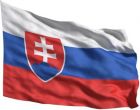 | There is a legal right for a social scholarship subject to specified conditions. The amount of social scholarship varies from EUR 10 to 270/month. Motivation scholarships are granted by the higher education institutions for excellent results in studies, research and development, artistic or sporting activity. Since January 2013 motivation scholarship has been provided to maximum 50 % of students for excellent study results and to maximum 10 % of students for excellent results in research and development, artistic or sport activity. The amount of motivation scholarship is set by higher education institution or faculty in its 'Decision' together with the reasons for granting scholarships. | Publicly subsidised loans of EUR 1 328/year are available through the Student Loan Fund for full- and part-time students during the regular length of study. |
Slovakia 2015/16 - grants and loans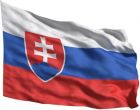 | There is a legal right for a need-based grant/scholarship subject to specified conditions. The amount of this need-based scholarship varies from EUR 10 to EUR 275 per month. Merit-based motivation scholarships are granted by the higher education institutions for excellent results in studies, research and development, artistic or sporting activity. The amount of the motivation scholarship is set by higher education institutions or faculties. In an effort to encourage students’ interest in selected scientific fields of study, Universities are provided with additional finances for merit-based scholarships. The scholarship amount is determined by Universities; but the funding represents an amount of EUR 1 000 per academic year for 15 % of students in the study fields identified. | Publicly subsidised loans provided by the Education Support Fund are available for full and part-time students throughout the regular duration of study programmes. Loans range from EUR 500 per year to 2 500 per year and are taken by about 1 % of students. |
Slovakia 2016/17 - grants and loans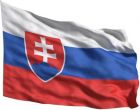 | There is a legal right for a need-based grant/scholarship subject to specified conditions. The monthly amount of
this need-based scholarship varies from EUR 10 to EUR 275. First and second cycle students are eligible. Short
cycle students are eligible for need-based scholarships of EUR 22.61-45.21 per month depending on their
academic performance.
Merit-based motivation scholarships are granted by the higher education institutions for excellent results in studies, research and development, artistic or sporting activity. The amount is set by higher education institutions or faculties. The state subsidy for this purpose is calculated at an average rate of EUR 450 per student for 10 % of students. Universities are provided with additional finances for merit-based scholarships in specific scientific study fields. The scholarship amount is determined by universities. The state subsidy provided is calculated at an average rate of EUR 1 000 (per student) for 15 % of students. | Publicly subsidised loans provided by the Education Support Fund are available for full- and part-time students throughout the regular duration of study programmes. Loans range from EUR 500 to 2 500 per year and are taken by about 1 % of students. |
Slovenia 2013/14 - grants and loans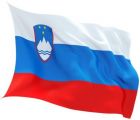 |
'National' scholarships are available for economically and socially disadvantaged students. They are awarded
according to a range of criteria which include both need- and merit-based elements. Merit-based scholarships also
exist. The grants are available for 12 months a year.
Students must be under 26 years old when enrolling for their first degree to be eligible for public support. | No loans. |
Slovenia 2015/16 - grants and loans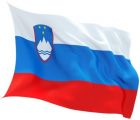 | Grants/scholarships are available for economically and socially disadvantaged students. They are awarded according to a range of criteria which include both need and merit-based elements. Merit-based scholarships also exist. The grants are available for 12 months a year. Students must be under 27 years old when enrolling for their first degree to be eligible for public support. | No loans are provided. |
Slovenia 2016/17 - grants and loans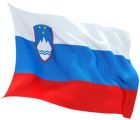 | Student grants can be need- or merit-based. The grants are available for 12 months a year. Corporate
scholarships may also be co-financed from public funds. Same support is available to short, 1st and 2nd cycle
students.
Need-based scholarships are available for economically disadvantaged students. The amount received depends on household income. In addition, allowances for academic performance, living away from home and special educational needs can be granted. In 2014/15, 20 % of all HE students received need-based scholarship. Merit-based scholarships are awarded to students with exceptional achievements in research and artistic field, competitions and/or academic performance. In addition to the basic amount of merit-based scholarship, allowances for living away from home and special educational needs can be granted. In 2014/15, 4 % of all HE students received merit-based scholarship. Full-time and part-time students are eligible for a scholarship if they are not employed, registered as unemployed or managers of a company or private institution and under 27 years old when enrolling for their first degree. They need to have Slovenian citizenship and/or to reside in Slovenia. | No loans are provided. |
Spain 2013/14 - grants and loans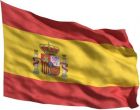 |
Although student grants exist at national, regional and local level, only the ones at national level have been
considered here, as they are quantitatively the most important ones. There are many types of grants, aimed at
covering different types of expenses such as transportation, residence, meals, books and materials, etc. The grant
also covers tuition fees. Students can receive different types of grants, depending on their family income. The
average amount of a grant is EUR 2 497.03 and a waiver from tuition fees. The maximum grant is EUR 6 241 and a
waiver from tuition fees, and the minimum is EUR 244 and a waiver from tuition fees.
Grants are need-based, but a minimum level of academic performance is also required. | No loans. |